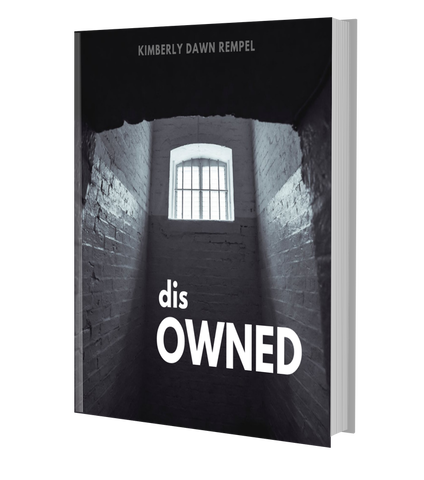
Life gives us truckloads of opportunity to experience rejection, doesn’t it?
Some of us get more “opportunity” than others.
I’ve come to realize I’m one of the lucky buggers who gets a bigger helping of it than some. From my early childhood yearnings for mommy and daddy to love me more, to best friends inexplicably drifting away or outright stabbing me in the back, to being disowned by family, I’ve had a wide range of experience with being rejected; feeling unloved.
Some of us get more “opportunity” than others.
I’ve come to realize I’m one of the lucky buggers who gets a bigger helping of it than some. From my early childhood yearnings for mommy and daddy to love me more, to best friends inexplicably drifting away or outright stabbing me in the back, to being disowned by family, I’ve had a wide range of experience with being rejected; feeling unloved.
Being rejected, especially by those close to us, is one of the most devastating, soul-crushing experiences we can ever know. A need for belonging is innate in each of us – once our need for food, air, and safety is satisfied, the very next basic human need is for love and acceptance.[1]
Our need for love and acceptance is built into our DNA.
Being loved (or unloved) changes us.
It actually changes who we are; how we see God, the world, and everyone in it. It even affects our sense of hope for the future and our will to live. [2] It’s like we’re somehow defined by love – like love is our identity. When there’s a lack of it, it messes with who we are.
Our need for love and acceptance is built into our DNA.
Being loved (or unloved) changes us.
It actually changes who we are; how we see God, the world, and everyone in it. It even affects our sense of hope for the future and our will to live. [2] It’s like we’re somehow defined by love – like love is our identity. When there’s a lack of it, it messes with who we are.
But here’s the thing. (Good news is coming, hang with me for a sec.)
It was precisely in those deep valleys of despair and disillusionment and identity crisis where I had no choice but to face my own heart; peer deep inside and face those scary questions.
What if my parents never really did love me?
(Evidence could be gathered to support such a theory.)
What if my friends are just being polite, and don’t actually care about me at all?
(It had happened before. Friends used and forgot me. Told me how amazing I was, then ignored me. Avoided me. It’s happened so many times… why wouldn’t it continue?)
What if everyone really thinks I’m annoying and hates looking at me?
(People would pretend not to see me. Like, lots of different people at different times. It was bizarre. There must be a reason…?)
What if everyone is right about me? What if I’m … unlovable?
It was all so gutting to consider. How could I be so unlovable? So unworthy of the affection and love of others? Especially when other people seemed to be so very acceptable and loved by their own family and friends. It didn’t make sense. And it certainly didn’t seem fair. In that valley of despair, tortured by my questions, I vacillated between anger, jealousy, and sorrow.
The Gift of Rejection
Despite the depth of sorrow and pain those rejections caused, there was an immense gift hidden inside of each one I could never have received otherwise. Without the darkness, I could never have learned about the light each difficulty offered.
If that friendship would have worked out, for example, (besides my belief that it would have been a dysfunctional, co-dependent one), I would have felt satisfied and content in my relationship, and would have fiercely protected that comfort. I would not have reached out to other people. I would have not felt the need to chase after God, craving His love and friendship. I would not have cried out. I would not have needed to. I would have had enough.
One of the greatest gifts of rejection is the way it highlights our God-given lack.
Each of us is wonderfully not-enough. Each of us aches for something we can’t find anywhere except in Him. It’s like God implanted a homing device in each of our hearts that pulses with desire for His presence. We ache for Love.
That inner ache is a powerful force, and we desperately try to fill it with whatever we can; friends, family, familiarity, achievement, wealth, success, knowledge, fitness, good causes, generosity, drugs, booze, sex, political activism… whatever can promise us that good, happy feeling of being lovable. Of being loved.
I’ve learned rejection is actually a gift; it reveals the inner ache for Love that we try so hard to satisfy,
and then opens our hearts to cry out to the only true source of fulfillment; Jesus.
Coping with Rejection
If you’re in the middle of feeling immense rejection and pain, and still trying to find a way to feel happy or lovable or loved, you probably rolled your eyes just then when I said Jesus is the answer.
I sure did.
In the middle of my own desperate aching for love there were moments when I didn’t want to hear about Jesus.
I wanted to hear that a martini would make me happy.
I wanted to hear that I could eat mountains of chocolate and not gain weight.
I wanted to hear that my heartache was other people’s fault and completely unfair and that they needed to adjust their attitudes. (Why is it always me God wants to change??)
I suppose there are a lot of ways for one to come to grips with one’s pain.
Discovering Truth through Fiction
Writing used to be the way I processed overwhelming thoughts and feelings. Much loss and trauma had visited me in the short space of a year, but one particular life-altering crisis fractured my writing. Immense grief short-circuited my process and suddenly I couldn’t cope through journaling anymore. The feelings were too dark to face head-on, and too deep to express. I felt lost.
Brimming with angst and in desperation to express the inexpressible, I decided to explore the art of fiction writing and set to work on writing what became my first-ever novella-length thriller, Disowned.
I scooped from my soul, splashing angst and terror onto the page. Legs tied to a chair. A young woman trying to please her unrelenting captor.
Over the three weeks of writing the story, a strange thing happened. I found some degree of resolution. As the characters wrestled with their demons, external and internal, on some level I was also facing mine.
The process of writing fiction offered me a way to face my fears and pains indirectly, which was just the kind of by-pass my short-circuited soul needed.
The best part for me, of writing Disowned, was that, through telling the story of the captive’s torment in that dungeon, I myself was rescued.
In my deepest pain and ache, when the sickle of rejection had sliced too deeply and too often, and it was starting to scar my hope in even God’s ability to love me, that’s when God strode into my dungeon of despair with his flashlight of hope, and smiled on me. Called me by name. Looked at me with those eyes that look like home.
And I raised my zip-tied hands to him, all bound with fear and doubt and pain, and he cut them free.
He is my rescuer, all good and all love.
And He wants to be that for you too.

